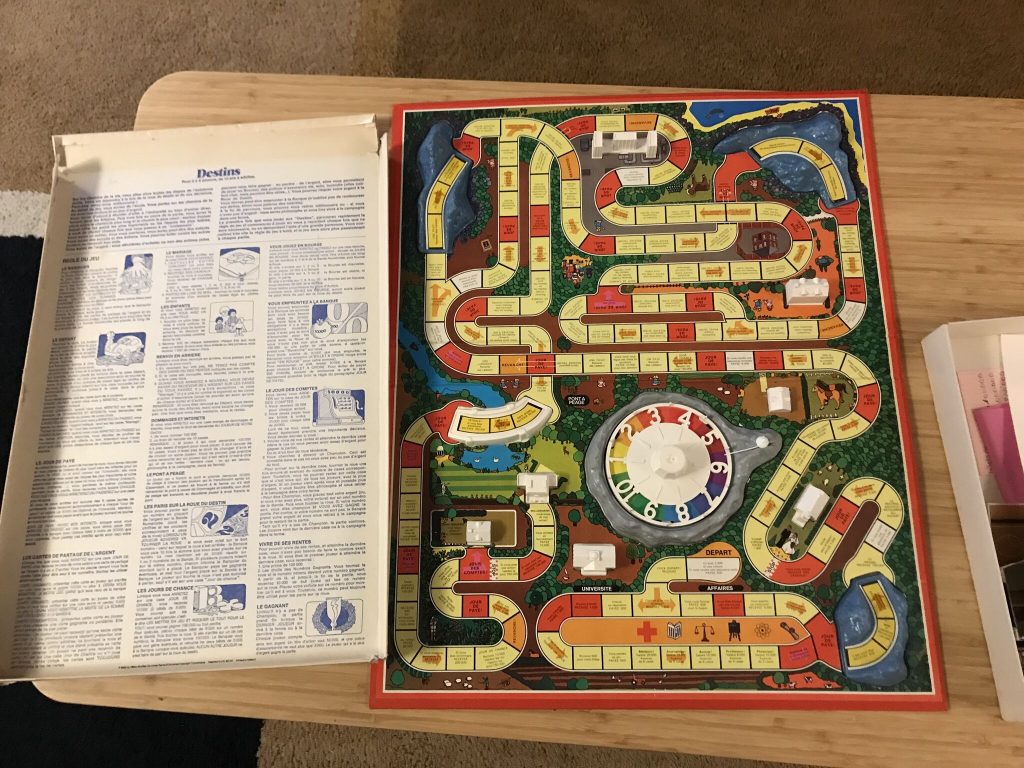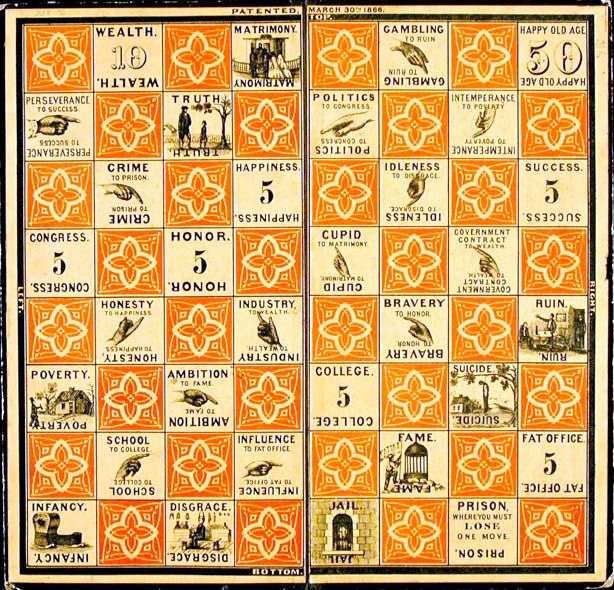
What’s the meaning of Life, the board game? I was delighted to find that my friend David Argellies bought a copy of this Milton Bradley classic at a yard sale. (Also, it turns out the the game is called “Destins” in French, which only ups the charm.)
Along with Monopoly and Hotels, this is one of the board games I remember most from my 80s childhood. In a nutshell, you spin a brightly colored spinner, then move a little car around a track, where you are assigned a profession, get married, and have kids.
All represented by little blue and pink plastic pegs you squeeze in your plastic car, and a pile of cash next to you.
Playing it again, I was struck that everything in the game is about money. Every event is about winning or losing it, even to the point where you can buy insurance and bet on the next player’s turn of the wheel. And of course, the winner of the game is the one with the most wealth at the end.
The game seemed normal at the time, but now it feels more like you’re a gangster who held up a bank, kidnapped some kids and is making a run for it.
So I was amazed to come across an article by Jill Laporte about the history of the game. It turns out that this game was Milton Bradley’s big hit, back in 1860. Only his version didn’t have cars, or even cash!

Instead, it was a simple checkerboard, Chutes and Ladders style, that represented Victorian values, in their stark glory. Bravery or Perseverance brought you ahead, while Idleness or Intemperance put you back. Wealth was pretty high up on the board, but Gambling brought you all the way down to Ruin.
In fact, Gambling was considered so poorly that the game didn’t have dice, but rather a kind of top with numbers on the side!
Though both versions are comically caricatural, I imagine that Milton would have been outraged by the 1960s version of his game. Thankfully, game design has moved on a bit since then, right? Right?